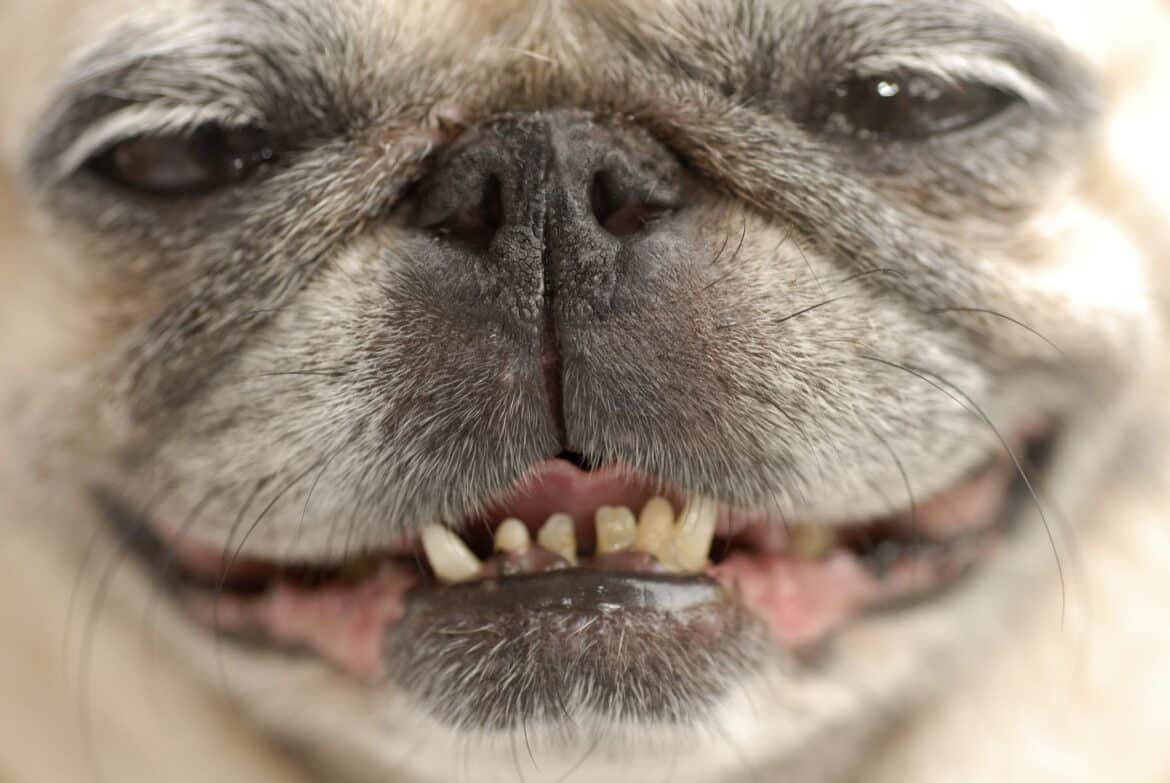Sudden bad breath in dogs is never normal. Bad breath, whether sudden or chronic, can be a sign of illness in dogs. In addition to the obvious causes of bad breath like tartar and gingivitis, metabolic disorders like gastrointestinal disease, diabetes, and kidney failure can cause bad breath in dogs.
If your dog is excessively licking and has bad breath, it’s time to look in his mouth. Dental disease (tartar, gingivitis, infection, periodontal disease, loose teeth), growths and foreign bodies in the mouth can all cause oral pain and drooling, which can result in excessive licking. Be sure to look at the roof of the mouth. I can’t tell you how many times I have found a stick or a bone lodged across the roof of the mouth with the dog licking excessively to try and dislodge it.
If you notice sudden bad breath or persistent, chronic bad breath in your dog, it’s time to schedule a veterinary exam. Your doctor will do a thorough oral examination as well as a full physical exam. If dental disease is identified, a dental cleaning and evaluation under general anesthesia is usually recommended. If the mouth looks healthy and the source of the bad breath is not revealed during the physical examination, a general diagnostic work up may be recommended to include blood tests and possibly chest and abdomen x-rays.
If your veterinarian determines that your dog appears to be generally healthy but has bad breath, a home dental-care program may be recommended. The gold standard of home dental care in dogs is daily tooth brushing with a veterinary enzymatic paste. If your dog will not tolerate tooth brushing, you can visit the Veterinary Oral Health Council (VOHC) website for effective alternative approaches to home dental care including diets, chews, water additives, wipes, sprays, and gels.


